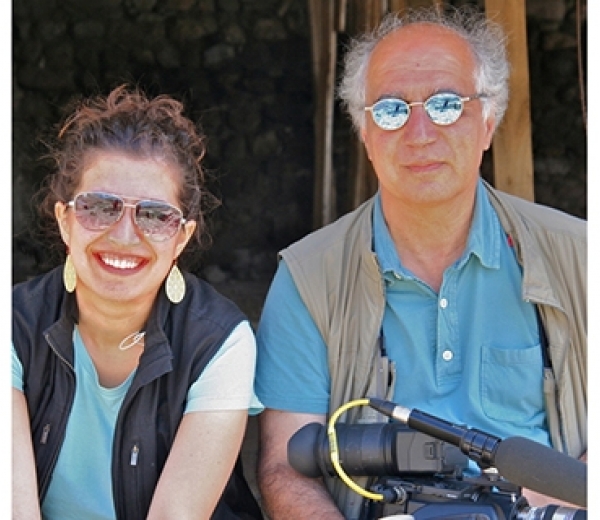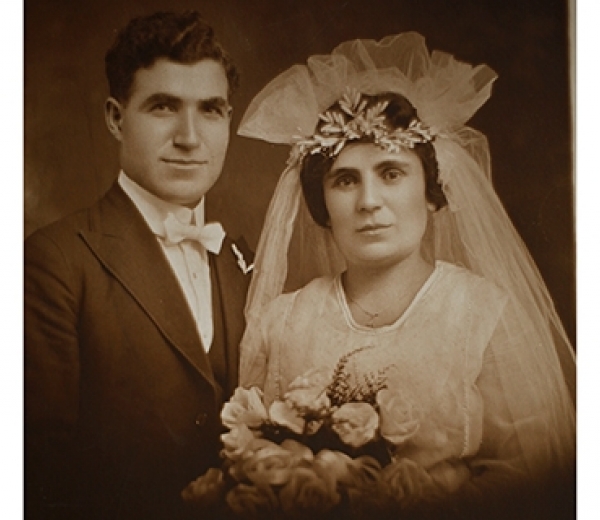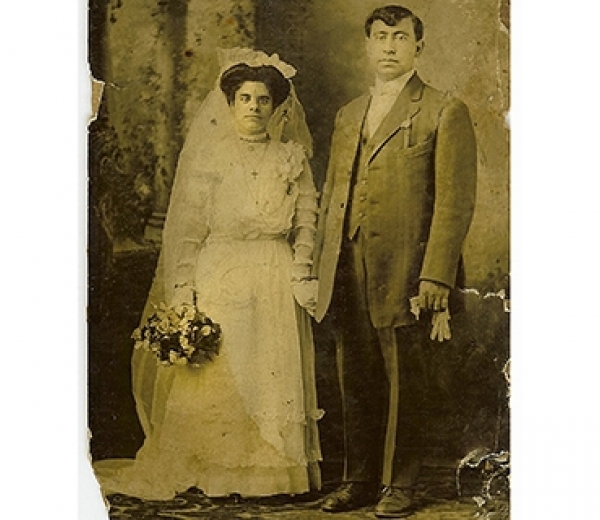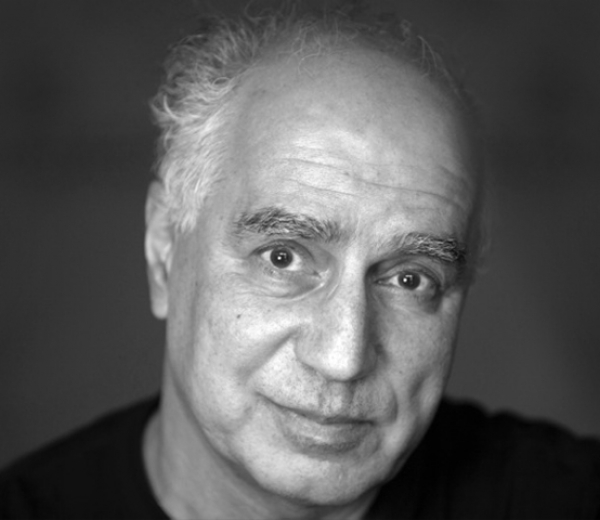|
Nubar Alexanian with his daughter Abby
|
Four Turkish villagers meet in US
The geography of Nubar’s family is fascinating in and of itself, as each one of his four grandparents hailed from a different village in Turkey.
Nubar’s maternal grandmother Vartui Serabian Antranigian was born and raised in one of the four Armenian villages of Yalova, Turkey, located near Constantinople. She married at the age of 12 into a baker’s family and had three daughters. In 1917 she witnessed the massacre of most of her family members: the only survivors were her younger brother and three daughters, who were secretly taken in by a kind Turkish neighbour for one night. The following day they were forced on a death march of more than 400 miles from Yalova to Aleppo, Syria. Subjected to terrible hardships and brutality, Vartui lost track of her brother along the way and was tragically forced to leave her ailing daughters by the side of the road to die. She was 18 years old.
Eventually, Vartui made it to Aleppo. Nubar supposes that she must have been wearing a baker’s uniform of some kind, because as she marched through town in a long line of women destined to die, a Turkish doctor approached her and asked if she could cook.
She became the family’s cook for two years, and in 1919 this same Turkish doctor paid for her passage to United States. He also gave her a silk carpet to sell, so that she would have some money.
Touchingly, he told her she could come back at any time and gave her a small piece of paper with all the information she would need to locate him. She finally made her way to Worcester, Massachusetts, which had a large Armenian immigrant community at the time, as part of a marriage arrangement with Alexanian’s grandfather Bedros.
Nubar’s maternal grandfather Bedros Torosian, born in 1887, grew up in a German orphanage near Tadem in the Kharberd Region of historic Armenia. “Torosian lived in a German orphanage until the age of 15 and was trained as a carpenter,” Nubar explains. He managed to escape the old country and make it to France and then Argentina before eventually arriving in Wocester, Massachusetts, in 1916.
Bedros and Vartui married in Massachusetts and had three children: Nubar, Alice and Rose Torosian. Unfortunately, Vartui passed away when Nubar was just three years old, so he never had a change to discuss her experiences of the Armenian Genocide with her.




